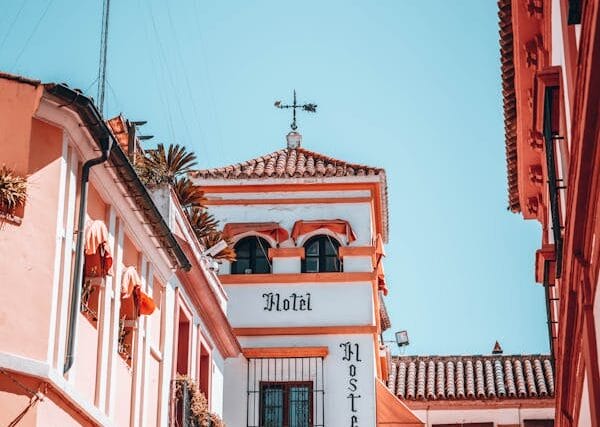
Blockchain and Tokenisation of Moroccan Real Estate: What’s Next?
Blockchain technology and real estate have emerged as two transformative opportunities in recent years, offering investors new possibilities worldwide. Morocco, with its rapidly developing digital infrastructure and attractive property market, is taking steps to explore these innovations further. Among the most promising advancements is tokenised real estate investment – an idea which may revolutionise how properties are owned, traded, and funded in the future.
Tokenisation allows property assets to be divided into digital tokens representing shares of ownership, providing wider access to real estate investments for more people – making the sector more democratic, transparent and efficient. Morocco stands to benefit greatly from this development as strong demand meets increased technological adoption – it may well mark an exciting turning point in their property market.
What Is Tokenised Real Estate Investment?
At its core, tokenized real estate investment refers to converting property ownership rights into digital tokens on blockchain-based digital ledgers. Each token represents a fractional ownership in physical properties such as villas in Marrakech or Casablanca or commercial buildings in Rabat.
Instead of buying an entire property, investors can purchase smaller shares to diversify their portfolio and enter the real estate market with less capital. Tokens stored securely on blockchain ensure ownership records remain transparent, traceable and tamper-proof.
This groundbreaking innovation marries the security and accessibility of real estate with that of digital assets, making secondary trading possible: investors can buy or sell property shares through dedicated digital platforms without incurring delays and costs associated with traditional transactions.
Why Tokenization Is Essential in Morocco
Morocco’s real estate sector is one of the cornerstones of its economy, contributing significantly to GDP and job creation. But like other emerging markets, Morocco faces many barriers such as limited access to financing, complex administrative procedures and low liquidity of property assets. Tokenised real estate investment could provide an effective solution that overcomes some of these hurdles.
1. Increased Access for Investment
Tokenisation offers wider access for smaller investors both locally and internationally to enter the property market with smaller budgets, making property ownership more accessible for everyone. Rather than needing hundreds of thousands of dirhams upfront, tokenization makes property investment accessible on more inclusive basis.
2. Increased Transparency
Blockchain provides enhanced transparency by recording every transaction on an immutable ledger that cannot be altered, which reduces fraud risks and ownership disputes that have sometimes held back Tokenised real estate investment development efforts in Morocco.
3. Improved Liquidity
Traditional real estate has limited trading liquidity; with tokenisation changing that by offering digital tokens for secondary market exchange. This gives investors greater flexibility and faster returns.
4. Attracting Global Investors Its International investors often face regulatory and bureaucratic hurdles when purchasing Moroccan property. Through tokenised real estate investment, cross-border transactions become easier, faster and safer – helping build Morocco’s profile as a tech-forward destination for international capital investment.
Regulatory Challenges and Next Steps (Regulatory Gap Analysis )
Although tokenised real estate investment holds great promise in Morocco, there remain obstacles. Being relatively novel, its legal framework must provide protection for investors while legitimizing blockchain-based property ownership.
Moroccan Capital Market Authority (AMMC) and Ministry of Economy have already demonstrated interest in blockchain applications within finance and digital transformation. When it comes to real estate however, taxation considerations, legal recognition of digital tokens, integration of blockchain platforms with national property registries remain open questions.
As the government promotes digital innovation, regulatory sandboxes and pilot projects will likely surface that test how tokenized property models function within Moroccan law, paving the way for their wider adoption over time.
Proptech and the Digital Economy in Context
Tokenised real estate investment is part of an emerging digital revolution known as Proptech (Property Technology). This movement brings together data analytics, artificial intelligence and blockchain technology to revolutionise how properties are built, sold and managed.
Morocco is part of a global movement towards PropTech innovations. Integrating blockchain and non-financial tokens (NFTs) into real estate industry transformation represents tokenised investments as an attractive long-term opportunity. Forbes published an article detailing this development.
Morocco is perfectly placed to lead Proptech innovation across Africa, as its strategic location places it between Europe and Africa. By adopting tokenised real estate models early, Morocco could attract international partnerships while increasing transparency, as well as helping the government’s goal of building an economic digital ecosystem.
Potential Use Cases in Morocco
Morocco already presents various applications of tokenised real estate investment:
Fractional ownership of luxury villas in Marrakech for both local and foreign investors.
Crowdfunding models for real estate development in emerging cities like Tangier or Agadir offer exciting opportunities.
Commercial property tokenisation enables companies to raise capital more efficiently.
Smart contracts for property management offer transparency when it comes to rental payments and maintenance agreements.
Each of these use cases has the power to revolutionise how property assets are funded and managed, providing investors with new opportunities at all levels.
Future of Tokenised Real Estate Investment in Morocco
Morocco’s blockchain ecosystem could experience dramatic transformation over the coming years. As awareness increases and more digital tools are made available, tokenized real estate investment could become common practice rather than an obscure novelty.
Education and collaboration will play key roles in this transformation. Developers, regulators, and investors must work collaboratively to establish best practices, design secure platforms, and establish trust within the market if Morocco hopes to lead by example in merging real estate and blockchain technologies.
Morocco’s tokenised real estate investment marks an exciting new era in its property market – one that combines transparency, innovation, and accessibility. As digital transformation accelerates in Morocco, tokenisation could act as an intermediary between traditional real estate investing and fintech’s fast-paced world of fintech investment.
Are you ready to explore the future of real estate investment in Morocco? contact us for expert insight, market trends and exclusive investment opportunities available within its property sector.



Leave a Reply